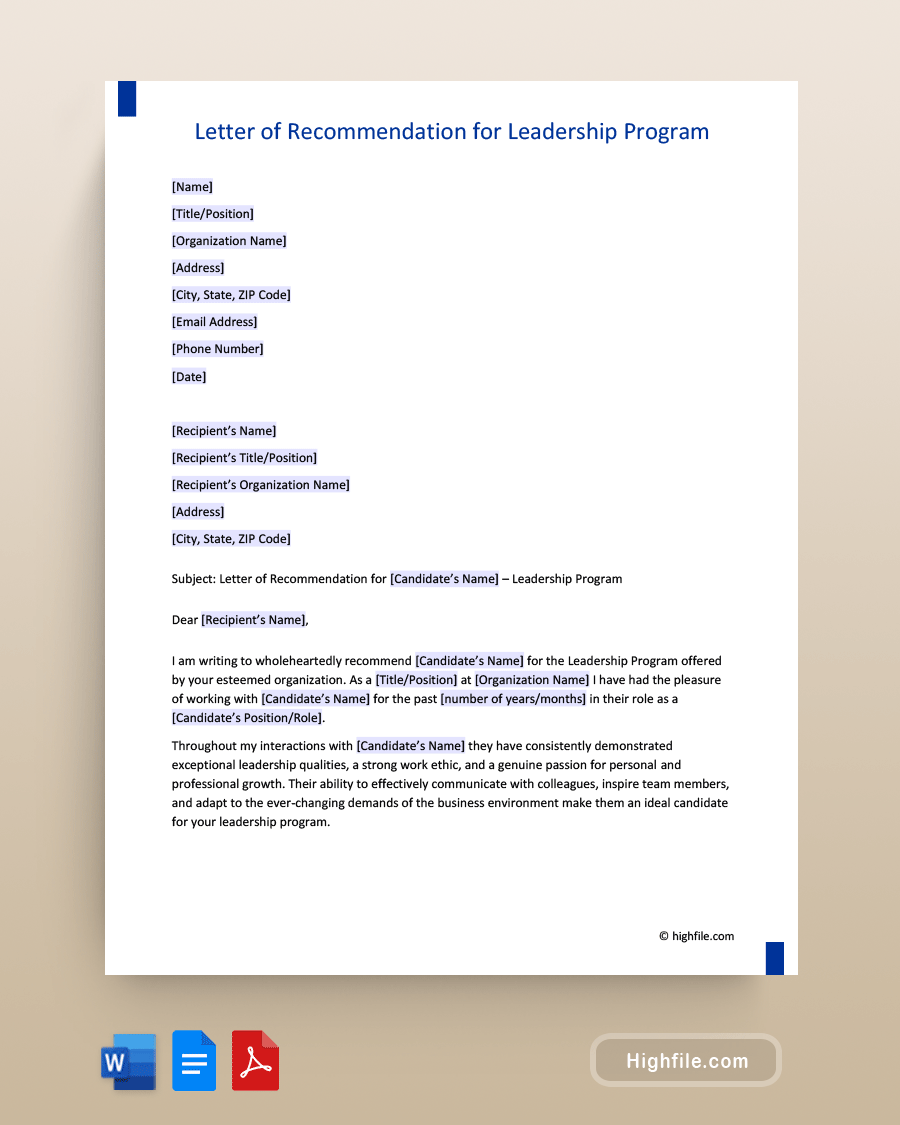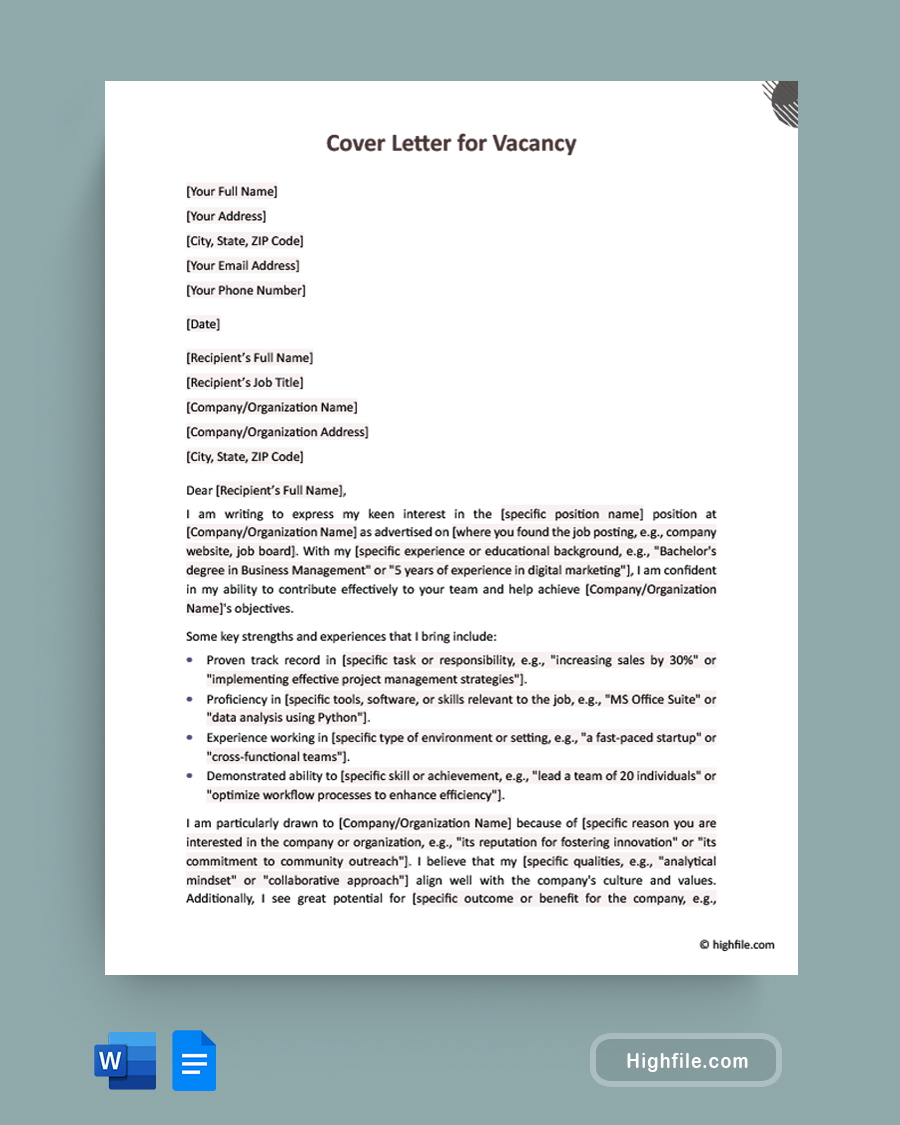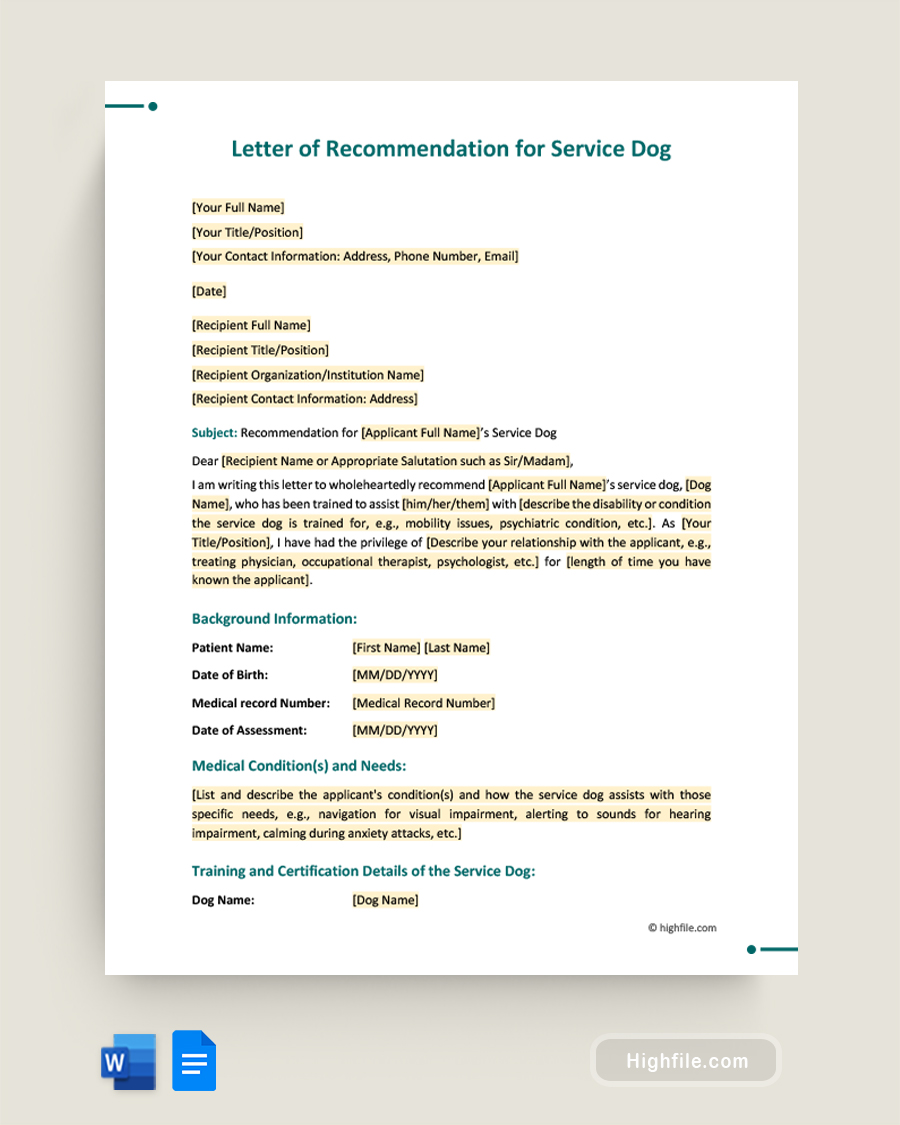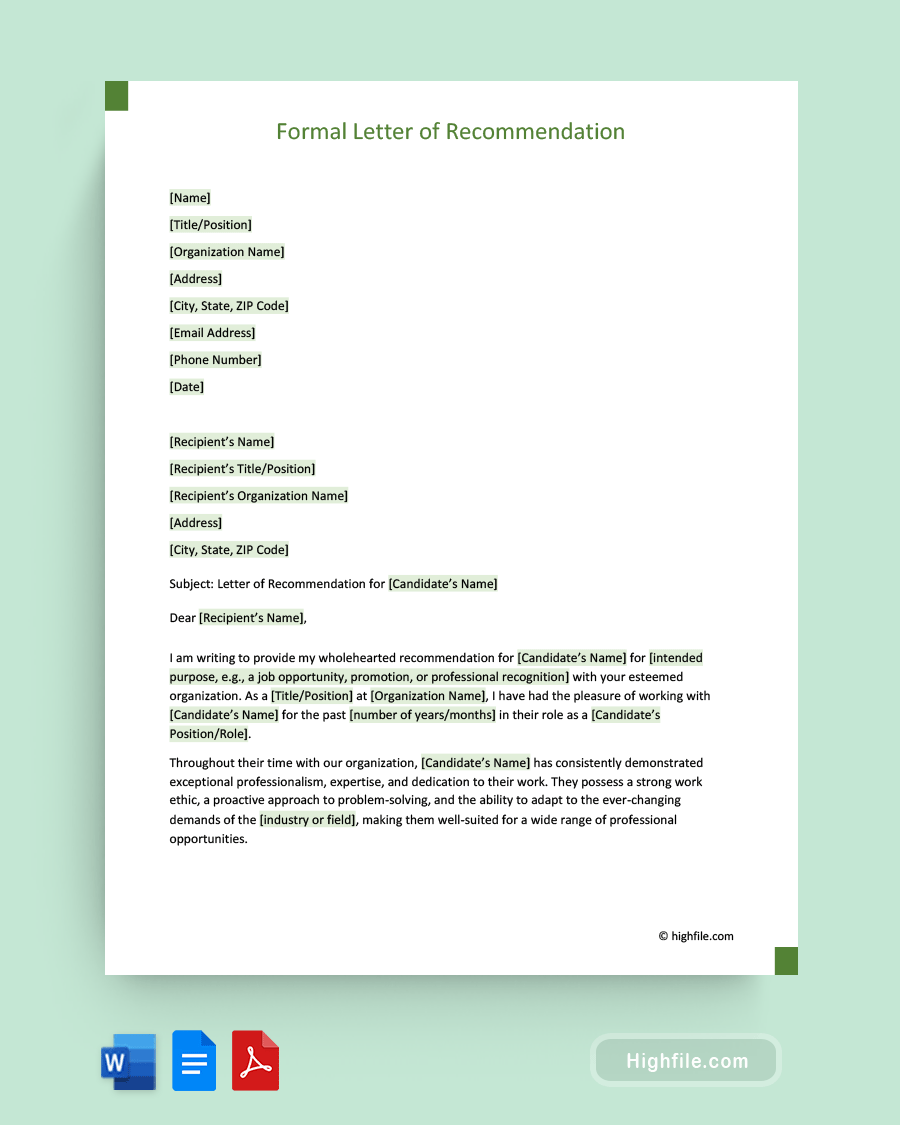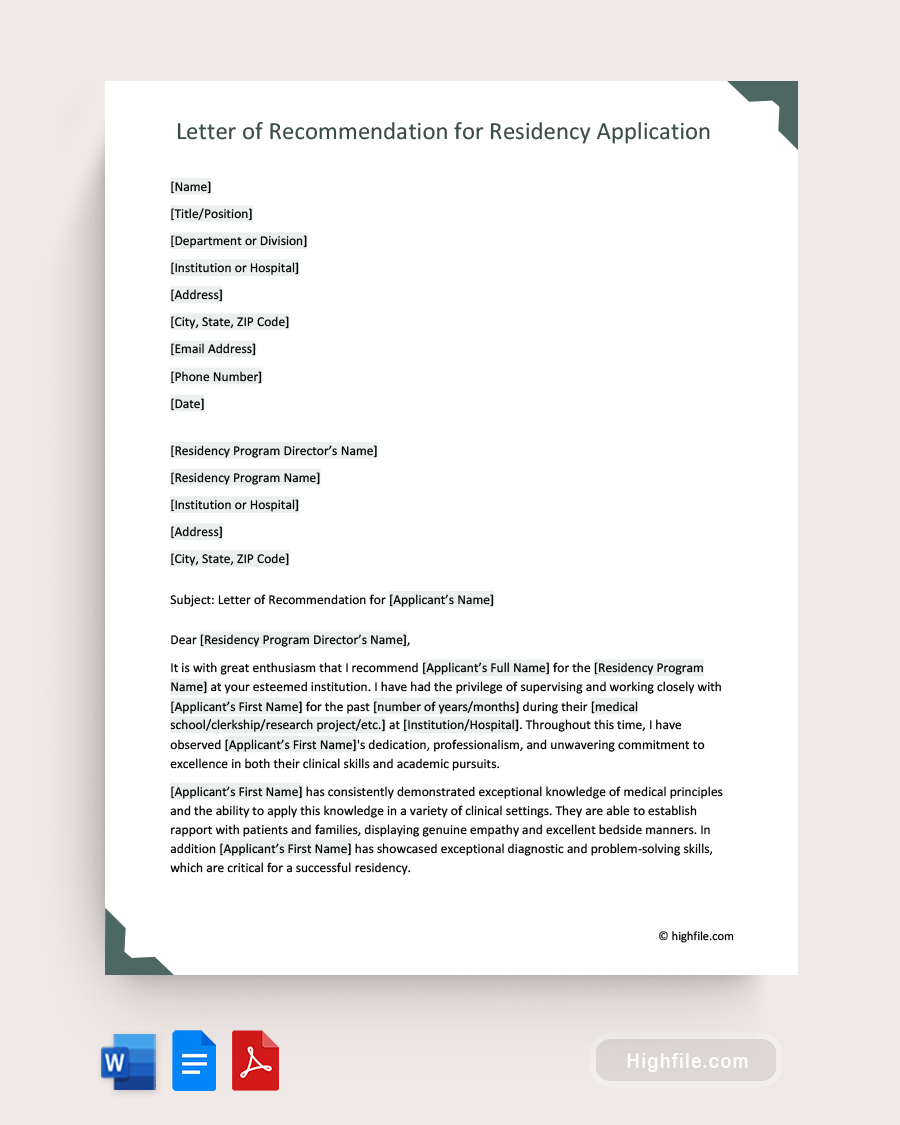A well-crafted letter of recommendation for a leadership program can be a game-changer for both the applicant and the recipient. For the former, a powerful letter can significantly boost their prospects of acceptance while also serving as a valuable validation of their leadership abilities. Meanwhile, the letter provides the recipient with key insights into the applicant’s potential, enabling them to make informed decisions.. Using a template can help the writer ensure that all necessary information is included in a clear, organized manner, ultimately strengthening the letter’s impact and effectiveness.
What Is a Letter of Recommendation for a Leadership Program?
A letter of recommendation for a leadership program is a document typically written by someone who attests to an individual’s leadership abilities and potential. It is usually required as part of the application process for a leadership program or scholarship. The letter should be written by someone familiar with the individual’s work and who has worked closely with them in a leadership capacity. This could be a supervisor, mentor, teacher, or coach.
Fun Fact: An excellent endorsement can make the difference between a candidate getting passed over and them becoming the top choice.
Why Is a Letter of Recommendation for a Leadership Program Important?
A letter of recommendation for a leadership program is essential to the application process. Here are some reasons why it’s important:
- Provides an objective assessment of the applicant’s leadership potential and qualities from someone who has worked closely with them.
- Demonstrates the applicant’s ability to work effectively in a team and lead others towards a common goal.
- Offers insights into the applicant’s character, work ethic, and potential for growth as a leader.
- Validates the applicant’s achievements and accomplishments, providing evidence of their past successes.
- Helps distinguish the applicant from other candidates, especially in a highly competitive application pool.
- Gives the selection committee additional information about the applicant beyond what’s included in their resume or application form.
- Provides a personal touch to the application, allowing the selection committee to see the applicant as a real person rather than just a set of credentials.
Important Note: A high-quality endorsement shows how the candidates’ leadership style aligns with the program’s goals and needs.
How to Write a Letter of Recommendation for a Leadership Program
When writing a letter of recommendation for a leadership program, it’s essential to follow a structured approach to ensure the letter is effective and impactful. By following these steps and tips, you can create a letter of recommendation that effectively showcases the candidate’s leadership potential and makes a strong case for their acceptance into the program.
- Information: Gather information about the candidate’s leadership experience, accomplishments, and personal attributes.
- Requirements: Research the program to ensure your letter highlights skills that align with the organization’s goals.
- Template: Use a professional tone and format.
- Opening: Start with a polite salutation and a strong opening statement that endorses the candidate.
- Credentials: Explain your relationship to the candidate and demonstrate your credentials.
- Skills and Abilities: Provide specific examples illustrating the candidate’s leadership potential, skills, and achievements.
- Potential: Address the candidate’s potential for growth and development as a leader, highlighting their strengths and areas for improvement.
- Closing: Use a formal closing and provide your contact information for follow-up.
- Editing: Proofread the letter carefully for spelling and grammatical errors, and ensure it is well-organized and easy to read.
- Submission: Make sure you submit on time and follow up to ensure your letter was received.
Pro Tip: Comparing the candidate’s style to a well-known and respected leader in the field can help them stand out among the pool of respondents.
Common Mistakes to Avoid When Writing a Letter of Recommendation for a Leadership Program
By avoiding these common mistakes, you can create a letter of recommendation that effectively highlights the candidate’s strengths and leadership potential, helping them to stand out as a strong candidate for the program.
- Avoid using vague or generic language that doesn’t provide specific examples of the candidate’s leadership skills or potential.
- Don’t exaggerate or make false claims about the candidate’s abilities or accomplishments.
- Avoid using overly personal anecdotes or irrelevant information that doesn’t relate to the candidate’s leadership potential.
- Don’t include any negative comments or criticisms of the candidate, as this can harm their chances of acceptance.
- Avoid being too brief or informal, as this can make the letter seem unprofessional or rushed.
FAQs
It is not ethical or appropriate for a candidate to write their own letter of recommendation for a leadership program and have the recommender sign it. This would be considered dishonest and could potentially harm the candidate’s reputation if discovered. The purpose of a letter of recommendation is for the recommender to objectively assess the candidate’s skills, experiences, and potential based on their observations and interactions with the candidate. Candidates are encouraged to ask potential recommenders if they are willing to write a letter of recommendation on their behalf, but they should not be involved in writing or editing the letter.
When addressing a candidate’s specific leadership style and its effectiveness, a recommender can use various techniques to provide a comprehensive assessment. Here are some strategies:
ᐅ Use specific examples to illustrate the candidate’s leadership style and impact on the team or organization.
ᐅ Describe the candidate’s strengths and weaknesses as a leader, highlighting their areas of expertise and opportunities for growth.
ᐅ Compare the candidate’s leadership style to successful leaders in the same field or industry.
ᐅ Discuss how the candidate’s leadership style aligns with the values and mission of the organization or program they are applying for.
ᐅ Address how the candidate’s leadership style has evolved over time and how they have adapted to different situations or challenges.
ᐅ Provide feedback on how the candidate can continue to develop and refine their leadership style.
ᐅ Offer insights into the candidate’s communication, delegation, problem-solving, and decision-making skills, which are all critical components of effective leadership.
To balance discussing a candidate’s past achievements with their future potential as a leader, a recommender should start by highlighting their most significant accomplishments and concrete examples of their leadership potential. They should address the candidate’s potential for growth and development as a leader, emphasizing their ability to adapt to new situations and challenges. Finally, the recommender should offer insights into how the candidate can leverage their past experiences to continue to grow as a leader while emphasizing their ability to inspire and motivate others.
Key Points
A letter of recommendation for a leadership program can benefit both the candidate and the recipient. For the candidate, a strong letter can increase their chances of acceptance and validate their leadership potential. For the recipient, it provides additional information to make informed decisions. It is crucial to highlight the candidate’s skills and personal qualities through specific examples and anecdotes. Using a template can help the writer ensure they include all necessary information and present it clearly, and in an organized manner, ultimately strengthening the letter’s impact and effectiveness.
